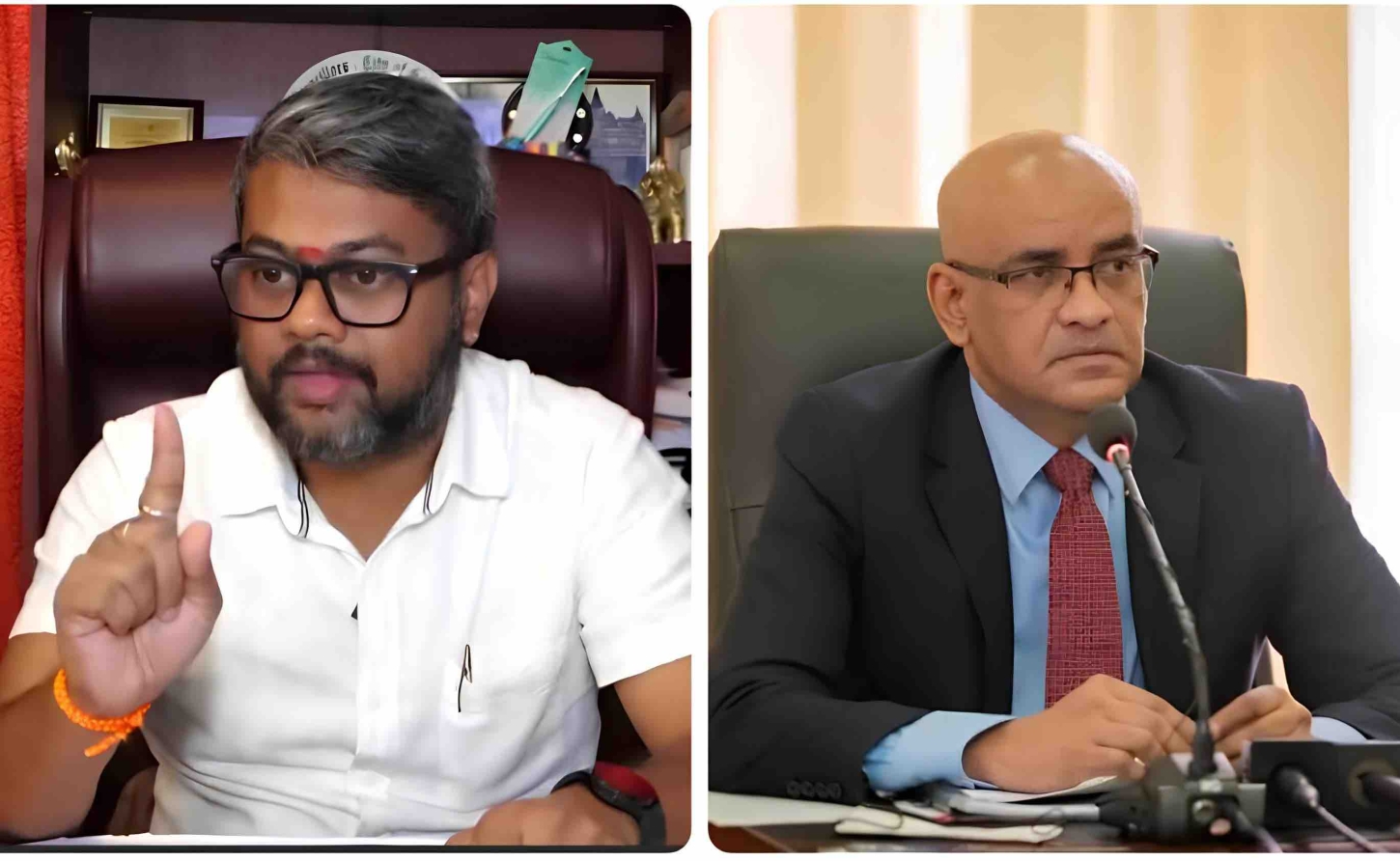GUYANA | IFAAD Condemns VP Jagdeo's "Stupid People" Remarks as National Outrage Grows

GEORGETOWN, Guyana, May 18, 2025 - In a nation already wrestling with Venezuelan border threats and domestic tensions, Vice President Bharrat Jagdeo has ignited a firestorm of public outrage after dismissing members of the Guyanese public as "stupid people" during a press conference last Thursday at Freedom House.
The Institute for Action Against Discrimination (IFAAD) has condemned Jagdeo's remarks in no uncertain terms, calling them "derogatory" and "disrespectful" in a scathing statement issued today. Former Georgetown Mayor and IFAAD Vice Chairman Pt. Ubraj Narine described the Vice President's words as a direct affront to the dignity of those he was elected to serve.
"Leaders bear a moral and constitutional responsibility to uphold the values of civility and respect," Narine declared, as the advocacy group formally called for a public apology from the nation's second-highest official.
The Vice President's verbal grenade has detonated across political lines and social strata. In a blistering letter to the editor, Opposition MP Annette Ferguson condemned Jagdeo's behavior as "disgraceful, offensive, and dangerously detached from reality," urging the nation to reject what she described as an "increasingly autocratic regime."
"Referring to Guyanese as 'stupid' is not only reprehensible," Ferguson wrote, "but indicative of a leader who seems either unhinged or dangerously detached from reality."
The outrage has quickly spread beyond political circles. Prominent businessman Azruddin Mohamed took to social media to condemn the Vice President's comments, bluntly stating: "This man has no respect for the people of this country."

Ferguson criticized Jagdeo for failing to seriously address these crises, accusing him of focusing more on mockery than national defense.
"This is a time when unity and leadership are required," she wrote. "Instead, the Vice President uses his platform to insult and ridicule patriotic Guyanese—those same citizens who would be called upon to defend our sovereignty," the parliamentarian noted.
Critics also point to Jagdeo's handling of the death of 11-year-old Adrianna Younge as further evidence of a leadership in crisis. While the nation mourns, Ferguson claims the Vice President appeared more concerned with crafting a narrative of "negligence" rather than pursuing justice and transparency—part of what she describes as a troubling pattern of suppressing uncomfortable truths.
In what many observers view as a calculated diversion, Jagdeo recently accused the opposition People's National Reform (PNCR) of "practicing obeah." Ferguson dismissed these allegations as "baseless and desperate," noting that Guyana's constitution protects religious freedom "whether to believe or not to believe in a deity, to practice Obeahism, Christianity, Hinduism, Islam, Worship Mother Khali or any faith, including the right to be an atheistic or agnostic."
Ferguson blasted Jagdeo for raising religious freedom issues based on "wild accusations" that she characterized as "nothing more than an attempt to shift focus from the real failures of the administration: economic hardship, insecurity, and a growing public distrust."
With Guyana facing both internal discontent and external threats, public confidence in the People's Progressive Party (PPP) government's ability to unite the nation appears to be eroding.
Ferguson has called on citizens to reclaim their constitutional right to speak out, citing Article 146, which protects freedom of expression.
"This country belongs to the people, not to one man with a microphone and a contemptuous tongue," Ferguson warned. "It is time for real change. Let Guyana breathe again."
IFAAD has urged fellow public officials, religious leaders, and civil society organizations to take a stand against such divisive rhetoric, emphasizing the critical importance of tolerance in an increasingly polarized political climate.
"Our nation deserves leaders who inspire confidence, listen with humility, and treat every citizen with dignity," Narine asserted. "Labeling any segment of our population as 'stupid' undermines the principles of equity and mutual respect that are the cornerstone of a healthy democracy."
The Vice President's remarks have ignited a broader conversation about leadership, respect, and the growing disconnect between government elites and ordinary Guyanese.
As calls for accountability rise, citizens from all walks of life—business leaders, politicians, and everyday people—are uniting behind a demand that would have seemed unnecessary in more civilized times: basic respect from those entrusted with the nation's highest offices.
Whether Vice President Jagdeo will heed these calls for an apology or continue what critics describe as his "abuse of the public" remains to be seen. One thing is certain—in a democracy where leaders serve at the pleasure of the people, calling those same people "stupid" may prove to be anything but smart.
-30-
